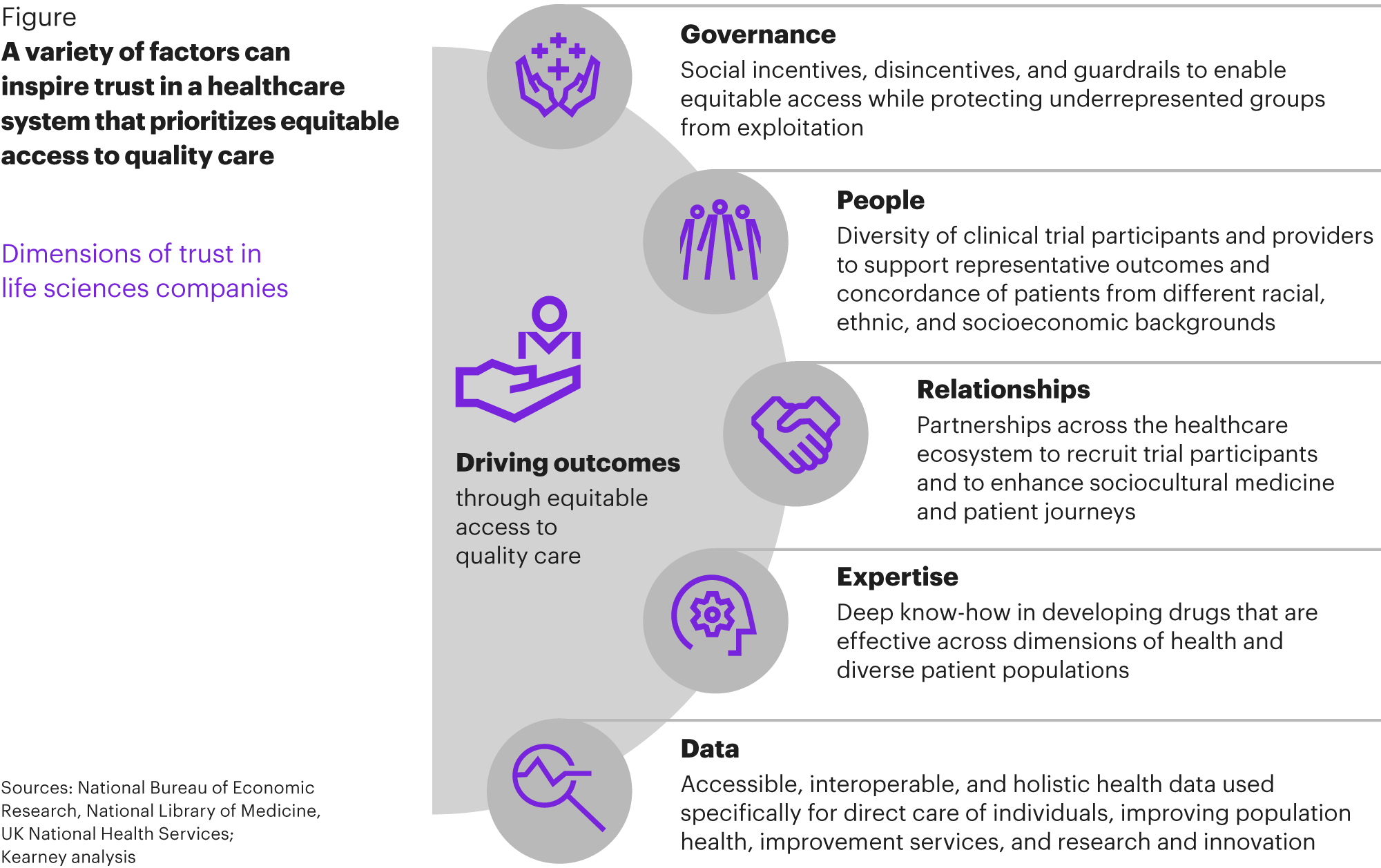


DETROIT, BOSTON, SAN FRANCISCO, TORONTO - Environmental, social, and governance issues are important for many sectors and the life sciences industry is no exception.
Environmental activism has been in the works for decades but has recently gained greater traction and gathered momentum. This can be credited to a turning point in the alignment between governance, people, relationships, expertise, and data across the value chain, ultimately creating a sense of trust with patients and society (see the figure below).

Now is the time to create that trust for patients in healthcare, especially given that there is a growing segment of society that views it as a basic human right, in the same category as adequate access to nutritious food and clean water. Higher levels of patient trust correlate with increases in positive health outcomes, including improved adherence to medications, better experiences, and an increased use of available and effective health interventions - e.g., public health programs. As patient populations become increasingly diverse - while also enjoying greater access to care channels - it is more important than ever to clearly understand which groups are medically disadvantaged and then develop appropriate interventions to enable more equitable health outcomes.
Much of this patient trust is built as part of efforts to resolve social inequities related to individual patient health outcomes. Presently, although (bio)pharmaceutical companies are advancing ways to improve health equity, there is still an opportunity to create even more value for medically disadvantaged patient populations while also successfully operating within today’s regulatory and macroeconomic conditions.
Going forward, the (bio)pharma firms most likely to succeed will be those that develop patien
The content herein is subject to copyright by The Yuan. All rights reserved. The content of the services is owned or licensed to The Yuan. Such content from The Yuan may be shared and reprinted but must clearly identify The Yuan as its original source. Content from a third-party copyright holder identified in the copyright notice contained in such third party’s content appearing in The Yuan must likewise be clearly labeled as such. Continue with Linkedin
Continue with Linkedin
 Continue with Google
Continue with Google







 1019 views
1019 views










